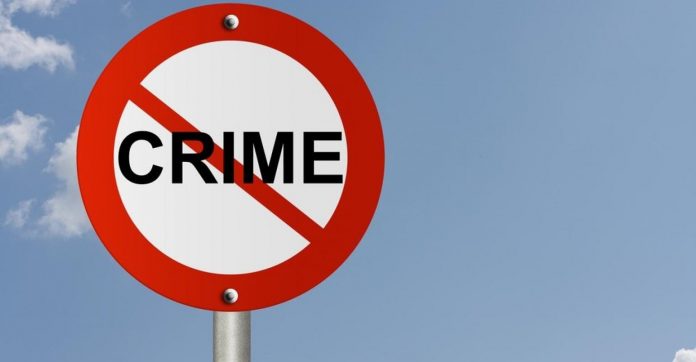This article is written by Arya Mittal from Hidayatullah National Law University. The article seeks to provide a brief analysis of the different kinds of organised crimes in Indian society along with the legal framework surrounding it.
This article has been published by Sneha Mahawar.
Table of Contents
Introduction
A criminal wrong is considered to be graver than a civil wrong as it is considered as an act against the whole society. Increasing crimes in any legal system are an example of a chaotic and alarming situation for the country. Amidst all crimes, certain crimes are performed repeatedly by certain criminals, to not take revenge but to gain profits. Such instances fall under the scope of organised crimes. This article makes an attempt to identify some of the most prominent forms of organised crimes in India, the legal framework surrounding these crimes and the challenges faced by the State to curb these crimes.
Concept of organised crime
Organised crime means the commission of a crime at regular intervals in order to make money or profits. Some examples could include human trafficking, money laundering, smuggling, etc. Certain characteristics of organised crimes have been discussed hereafter to get a better understanding of the concept.
Nature and characteristics of organised crime
Presence of mens rea and actus reus
The very first step in any crime is the intention. The presence of mens rea and actus reus are the two imperative essentials to prove that a certain crime has been committed. The former implies a guilty mind i.e. a person being mindful of his/her actions and knowing that a successful attempt would result in a crime and the latter implies a physical activity or omission by the person which gives effect to the crime. To know more about these two elements, check out this article.
Commission of crime
To commit a crime (including organised crime), there are four stages that needs to be fulfilled. First, there should be an intention to commit a crime. Secondly, there must be some preparation to give effect to the crime. Third, there should be an attempt, i.e., presence of some action in pursuance of the crime being committed. Lastly, the attempt should be accomplished for the commission of that crime.
Objective of earning profits
It is important to understand that the purpose of committing an organised crime is not to take revenge or harm someone, rather it is a kind of illegal business or a way for people to earn profits. However, the crime which is committed is incidental to such activity and ultimately, there is some kind of physical and/or mental injury.
Regularity
Another important characteristic of an organised crime is that it is not a one-time event, but rather on a regular basis, just as a business. It is because of this aspect of continuity that the term is referred to as ‘organised’, since a structure has been created wherein similar activities (crimes) are being conducted regularly to earn profits.
Types of organised crimes
There are various activities that may be termed as organised crimes. Though there cannot be a definite list, some of the most common types of organised crimes in India have been discussed below.
Money laundering
Money laundering is one of the most serious crimes which can severely affect any economy in several aspects. This crime is specifically governed by the Prevention of Money Laundering Act, 2002. It is a way by which illegal money earned from sources such as drug trafficking, human trafficking, etc. are diverted to create an impression that such money comes from a legitimate source. Many criminals are engaged in this profession where they help people with an illegal income to convert it into a legitimate income.
Smuggling
Smuggling is another major economic offence in a form of organised crime. This is mostly governed by the Customs Act, 1962. It is natural that the goods which are illegal in the territory of India or heavily taxed are smuggled to continue their trade or maintain profits. With a change in fiscal policy, the definition of smuggled goods vary but it is mostly items such as contraband substances, valuable jewels, electronics, certain fabrics, etc. which are smuggled in India. Due to the vast coastline, it becomes easy for people to smuggle goods.
Drug trafficking
Drug trafficking is another major crime that poses a threat to the younger population of India, considering its drastic effects on physical and mental health. It is usually considered that the most important reason for the high rate of drug trafficking is the geographical condition of India. It is located between the Golden Triangle (Myanmar, Thailand, and Laos) on the northeast and Golden Crescent (Pakistan, Afghanistan, and Iran) on the northwest- both of which are the two largest sources of illicit drugs in Asia. Resultantly, this form of organised crime has become more prevalent and significant in the country.
Human trafficking
Article 23 of the Indian Constitution explicitly prohibits human trafficking. Further, there are various trafficking prohibition laws discussed in the latter part of the article. Human trafficking is one of the most significant and heinous organised crimes. This involves women trafficking, child trafficking, trading in sex workers, etc. A book titled “Indian Mafia” by S.K. Ghosh has revealed that there are more than twenty-five lakh prostitutes in the country and roughly, three lakh prostitutes get into the profession every year. Prostitution per se is not a crime but forcefully dragging young girls or running a brothel imposes criminal liability. Moreover, human trafficking is undoubtedly a crime.
Contract killings and kidnapping
These are governed by the Indian Penal Code. Contract killings means murdering someone for money on a contractual basis. This is usually prevalent among the highly influential and public personalities who are being murdered by their enemies/competitors through some other criminal for a ransom. Similarly, kidnapping incidents are also prevalent wherein people pay a certain sum of money to get someone kidnapped or these criminals ask someone for a ransom. Such crimes are performed by organised criminals who do such tasks on a regular basis.
Laws governing organised crimes in India
Indian Penal Code
Criminal conspiracy
Section 120A of the Indian Penal Code, 1860 (IPC) deals with criminal conspiracy. Where two or more persons agree to commit a crime, then they can be punished for criminal conspiracy. The exception clearly provides that it is immaterial whether the object of such crime committed is the main intention or incidental. Hence, organised crimes shall definitely be governed by this provision. Further, Section 120B of the IPC imposes criminal liability which can extend up to death punishment and even heavy fines.
Specific crime under the IPC
Additionally, these organised criminals shall also be charged for the specific crime which they have committed. For instance, criminals engaged in contract killings shall be liable under Section 300 and Section 302 of the IPC which deals with murder. Similarly, an organised criminal engaged in kidnapping shall be dealt with under Section 360, Section 363 and Section 364A of the IPC. A person engaged in human trafficking shall be charged under Section 370 and Section 370A of the IPC.
Organised crime-specific law
There is no central legislation on organised crime. However, owing to the high rates of organised crimes in Mumbai, Maharashtra came up with the Maharashtra Control of Organised Crime Act, 1999. It provides for different provisions dealing with the evidence to be admitted, protection of witnesses, presumption of the court to consider the accused as criminals on fulfilment of certain conditions, etc.
Preventive laws
National Security Act, 1980
There are various preventive laws existent in India which are applicable to organised crimes, explicitly and implicitly. One of them is the National Security Act, which provides for the detention of individuals “acting in any manner prejudicial to the defence of India, the relations of India with foreign powers, or the security of India”. The scope of the term ‘defence’ is very wide and it includes operations carried out by gangsters and since the preventive detention is carried out by the executive, there is very little role of courts to play.
Prevention of Illicit Traffic in Narcotic Drugs and Psychotropic Substances Act, 1988
Prevention of Illicit Traffic in Narcotic Drugs and Psychotropic Substances Act is another preventive law enacted with the aim of controlling the actions of people engaged in the illicit trafficking of drugs and other narcotic substances. Under this law, a person can be detained for upto one year if found to be engaged in drug trafficking. In certain cases, this period can be further extended to one more year depending on the severity of the case.
Miscellaneous laws
Apart from these laws, there are various other laws that govern certain specific organised crimes. To exemplify, the Narcotics Drugs and Psychotropic Substances Act, 1884 govern the cases relating to trafficking of different narcotic substances; Customs Act, 1962 governs and imposes liability for cases related to smuggling; Prevention of Money Laundering Act, 2002 governs the cases relating to money laundering. Apart from these, there are many other laws such as the Immoral Traffic (Prevention) Act, 1956; the Foreign Exchange Regulation Act, 1973, the Public Gambling Act, 1867 etc.
Legal problems associated with organised crimes
Law-making and enforcement
There is no central legislation specifically governing organised crime in India. It is important that specialised steps are taken to curb this menace. Specific laws are required and the executive needs to be empowered to take steps accordingly. Moreover, the enforcement should also be stringent failing which, the whole object of enacting such a law would defeat.
Slow trials
Though these organised criminals are tried under different laws, the whole process of trials is very slow and there is a very low conviction rate because in most of the cases, in such a long period of time, the witnesses deny to come out of fear and in some cases, the pieces of evidence are lost.
Obtaining proof
As mentioned earlier, most of the witnesses deny coming out of fear, so even if they are arrested, they are later acquitted because of insufficient evidence and longevity of time. These players are really strong and influential in their area of operations and naturally, people would not wish to risk their lives by providing statements against them.
Lack of resources
A major part of the country is still unorganised and lack of proper resources and technology become an obstacle in way of curbing organised crime. The lower-ranked police officers are not given sufficient powers and a statement before them is not an admissible evidence. Further, these officers do not have sufficient equipment to tap these criminals.
Lack of coordination
Since there is no central agency controlling these activities, every state has its own way of functioning. These criminals do not stay for long at one place and keep migrating every now and then. In such cases, due to lack of coordination, it becomes difficult and sometimes, impossible to catch them.
Conclusion
The aforesaid discussion reveals the concept of organised crime where the ultimate intention of the criminals is not to harm someone but rather make profits, however, some form of injury is caused. Some common features of these crimes have also been mentioned above. Such crimes occur in various forms including drug trafficking, human trafficking, money laundering, contract killings, etc. There are various central and state laws such as the Indian Penal Code, PMLA, NDPS Act, preventive laws, etc. to govern and curb organised crimes. Despite the existence of various legislation, the State has not been successful in curbing these crimes to a considerable extent. This is because of various challenges faced by the State such as lack of proper enforcement, lack of resources, slow trials, difficulty in obtaining proof, etc. In light of these circumstances, it is imperative that the Parliament bring in some laws specifically governing organised crimes and form diplomatic relations with other nations since many of these crimes are transnational in nature.
References
- https://unafei.or.jp/publications/pdf/RS_No54/No54_10VE_Sharma.pdf
- https://www.svpnpa.gov.in/images/npa/pdfs/CompletedResearchProject/22_organizedcrimeindia.pdf
- B.M. Gandhi’s Indian Penal Code, 4th ed. (2017)
Students of Lawsikho courses regularly produce writing assignments and work on practical exercises as a part of their coursework and develop themselves in real-life practical skills.
LawSikho has created a telegram group for exchanging legal knowledge, referrals, and various opportunities. You can click on this link and join:
Follow us on Instagram and subscribe to our YouTube channel for more amazing legal content.
 Serato DJ Crack 2025Serato DJ PRO Crack
Serato DJ Crack 2025Serato DJ PRO Crack











 Allow notifications
Allow notifications


